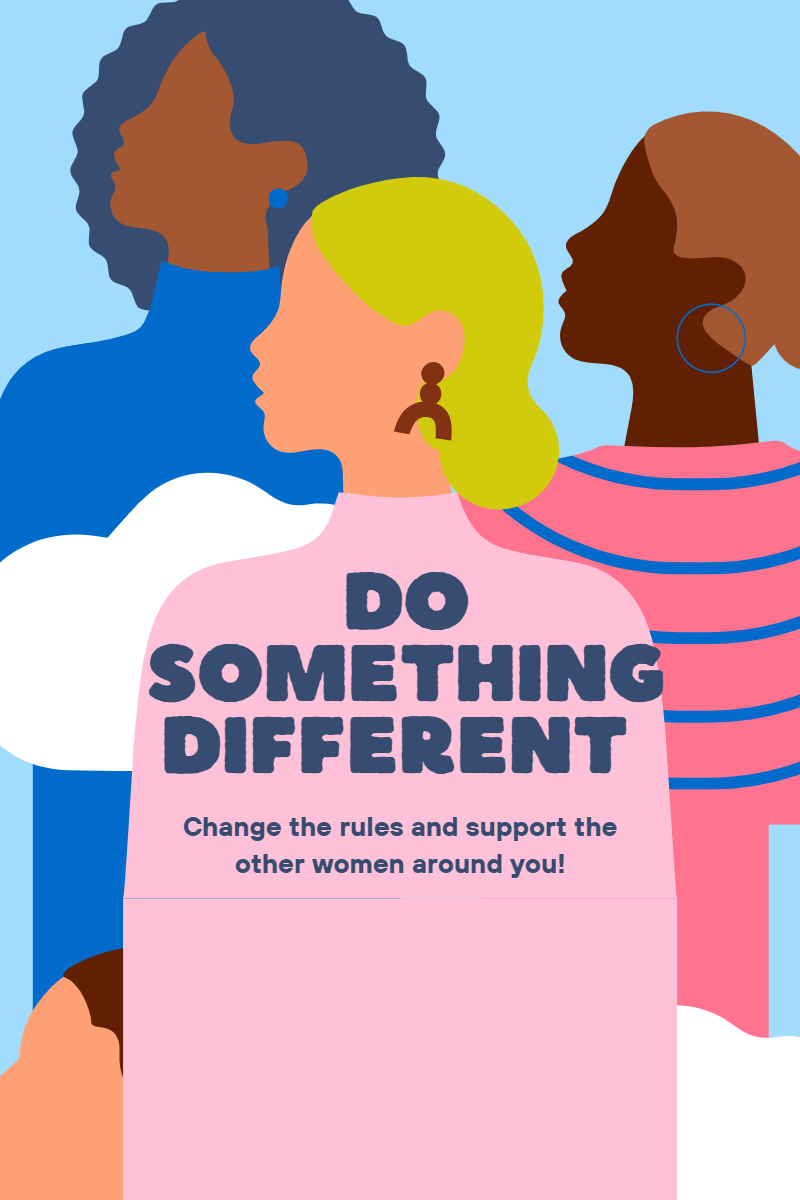If you’re feeling unhappy at work, you are not alone. The employee well-being platform Gympass surveyed 9,000 employees worldwide and found that nearly half (48%) reported a decline in well-being in 2022. The survey found that over 25% of respondents were “completely unhappy” at work. Moreover, a recent Gallup survey found that 60% of employees are emotionally detached from their jobs, and employee stress is at an all-time high.1
Women in the workplace experience unique challenges, such as financial insecurity and increased burdens on parents and caregivers. Without additional resources, it’s easy to burn out.
Discover how women can support each other. Here are some practical strategies for bonding and collaborating with other women.
Cultivate Relationships
Harvard Business Review research found that both male and female executives likely had a diverse network of peers. However, it is also crucial for women to have close female friends to achieve greater authority and higher salaries.2
Keep these strategies in mind:
- Focus on giving wisely. Helping others is essential to building professional networks and personal friendships. You can lend your expertise and time by reaching out to others. Create a supportive environment by performing random acts of kindness when it makes sense, and you can do so from a centered place while setting boundaries. Give when you don’t feel you will resent giving.
- Be selective. It is more important to have quality friendships than quantity. Find other women who share your interests and values. If someone consistently fails to respect your boundaries or declines your invitations to get together, move on.
- Pace yourself. Mutually beneficial relationships take time to develop. Be patient. Learn about each other gradually.
- Have fun. Friends see each other outside of the office and talk about stuff besides spreadsheets and coding. Plan outings and host parties. Take a vacation or bake cookies together.
Encourage Work-Life Balance
It is still the case that women are responsible for the overwhelming majority of household work at home. According to the American Psychological Association, stress and other health issues are caused by this.3
Try these techniques to enhance work-life balance:
- Suggest flexible hours. A significant increase in remote work opportunities has been attributed to the pandemic. Supervisors at your company are willing to experiment with alternative schedules as long as employees complete their responsibilities.
- Examine benefits. Tell your employer what perks matter to you and other women at your workplace. You may prefer gym memberships instead of bean bag chairs and ping pong tables.
- Review workloads. Does your performance review reflect realistic expectations? See if adjustments need to be made with your colleagues.
- Take time off. Studies have shown that excessive overtime and unused vacation days reduce productivity. Set an example by leaving the office at a reasonable hour and taking advantage of your annual leave.
Develop Leadership Skills
There are also challenges facing women at the top. Also described in the McKinsey report are Onlys: women at their level who are the sole or only woman. Their workload is more likely to be pushed, and they are more likely to be victimized by microaggressions.
These strategies can help:
- Support mentoring. Depending on your career stage, you can look for a mentor or become one yourself. You might even do both. These relationships provide guidance and build community.
- Advocate for others. The Devil Wears Prada stereotype holds some truth, unfortunately. Regardless of whether your company culture tolerates bullying of other women, break the cycle. Women must have the courage and compassion to provide constructive feedback and assist other women in advancing their careers.
- Network with women. Become a member of a professional women’s group or start your own. Take advantage of conferences that other women are attending and follow up with interesting acquaintances.
- Make referrals. Introductions and referrals are effective ways to help other women. Partner with others to find new clients, partners, and friends.
One woman’s success can benefit others too. Ensure that you create an environment in which the accomplishments of each individual are maximized and celebrated.
References:
- https://hrexecutive.com/startling-new-wellbeing-data-is-a-call-to-action-for-hr-leaders/?oly_enc_id=7454I7927023I4L
- https://hbr.org/2019/02/research-men-and-women-need-different-kinds-of-networks-to-succeed
- https://www.livescience.com/20943-housework-distresses-women.html














